Travel AI Tools: Discover the Best, Most Accurate, and Practical Solutions for Your Journey
The digital age has revolutionized travel planning, and the forefront of this transformation is the integration of artificial intelligence (AI) into travel websites and apps. This blog delves into the innovative AI-based features of prominent travel platforms like Booking.com, TripAdvisor, KAYAK, iplan.ai, Skyscanner, ixigo.com, TripPlanner.ai, and travelfeed.io. Each platform brings unique AI functionalities to enhance the user experience in travel planning, from conversational interfaces to personalized itinerary creation, offering insights into the future of AI in the travel industry.
1. Booking
Booking.com's AI Trip Planner, launched in beta, is built upon the company's existing machine learning models and partially powered by large language model technology from OpenAI's ChatGPT API. It offers a conversational experience for trip planning, allowing users to ask general travel-related questions or more specific queries at any stage of their trip planning process.

Pricing:
Not specified
Features:
Conversational interface for trip planning
Supports general and specific travel-related queries
Provides travel inspiration and itinerary creation
Real-time search refinement
Visual list of destinations and properties
Integrated accommodation booking within Booking.com app
Pros:
Conversational and intuitive interface
Real-time response and refinement of search
Integration with Booking.com's booking system
Cons:
Limited availability in beta
Currently available to selected US travelers only
Language settings restricted to English
2. TripAdvisor
Where To AI is a web app that utilizes artificial intelligence, including the TripAdvisor AI tool, for travel planning. It offers personalized recommendations for destinations, accommodations, and activities based on user preferences, travel history, and budget, aiming to create memorable travel experiences.
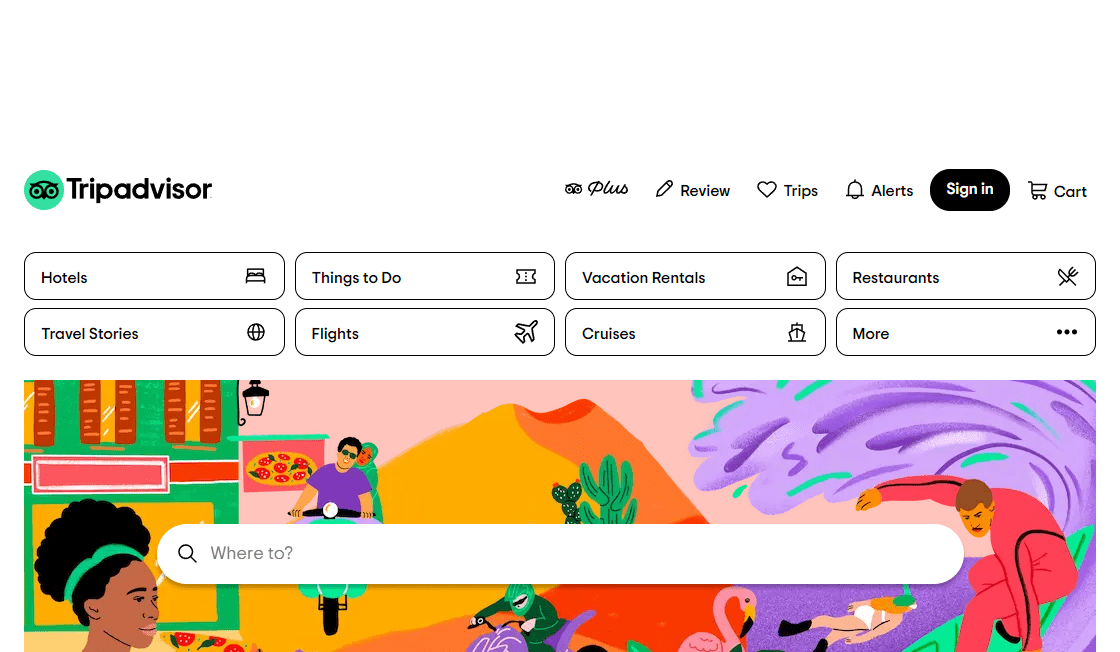
Pricing:
Free
Features:
Personalized travel recommendations
Easy travel planning based on user preferences and history
Helps in discovering new destinations
Pros:
Discovers new destinations based on travel style, budget, and mood
Provides personalized itinerary with best places to stay, eat, and explore
Saves time by eliminating the need to browse through various websites and guides
Interactive features for a creative travel planning experience
Supports a small, innovative project showcasing AI's potential in travel planning
Cons:
Still in beta mode, might not work perfectly or cover all destinations
Relies on internet data, which may not be always accurate or up-to-date
Might not capture all nuances of travel planning like visa requirements or cultural differences
May not suit everyone's taste or style, some may prefer personal research or human travel agents
Could negatively impact the environment due to increased travel
3. KAYAK on ChatGPT
KAYAK on ChatGPT, a feature of KAYAK, is designed to enhance the travel search experience by integrating KAYAK's capabilities with the AI-powered language model ChatGPT developed by OpenAI. It acts as a virtual travel assistant, enabling conversational interactions for travel queries. Users can input natural language questions, receiving personalized recommendations based on KAYAK's travel data.
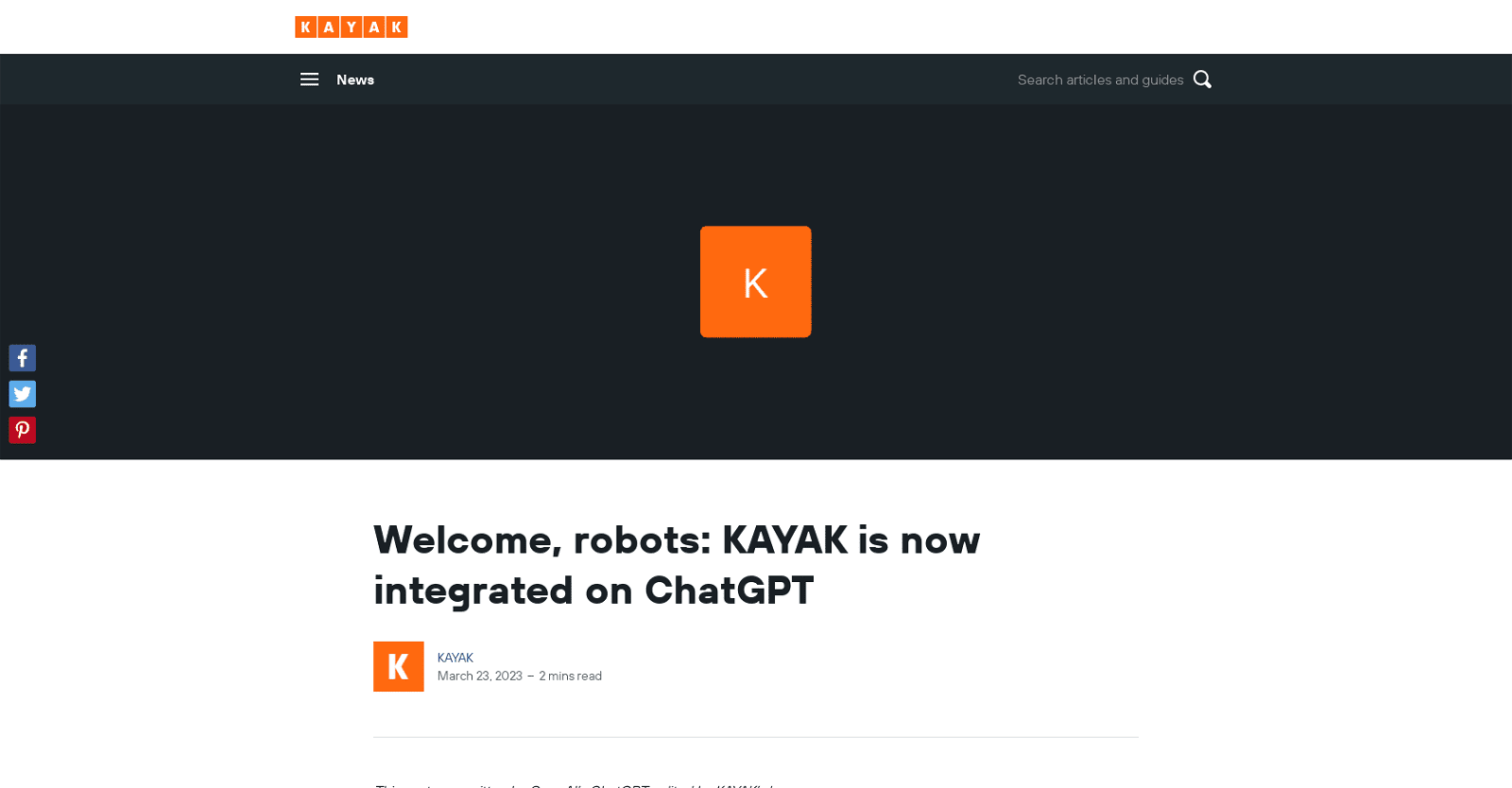
Pricing:
Available to ChatGPT Plus subscribers initially, with plans to roll out to more users
Features:
Virtual travel assistant
Conversational interaction for travel searches
Personalized travel recommendations based on user queries and KAYAK’s historical data
Natural language processing for understanding user needs
Pros:
Enhanced travel search experience
Personalized travel suggestions
Ease of use with natural language queries
Cons:
Initially limited to ChatGPT Plus subscribers
Dependent on the accuracy of KAYAK's historical data
4. iplan.ai
iplan.ai is a smart travel planner that leverages artificial intelligence to create personalized itineraries. It requires users to input their trip details, interests, companions, duration, and budget. The AI curates an itinerary matching these needs, which can be modified by the user.
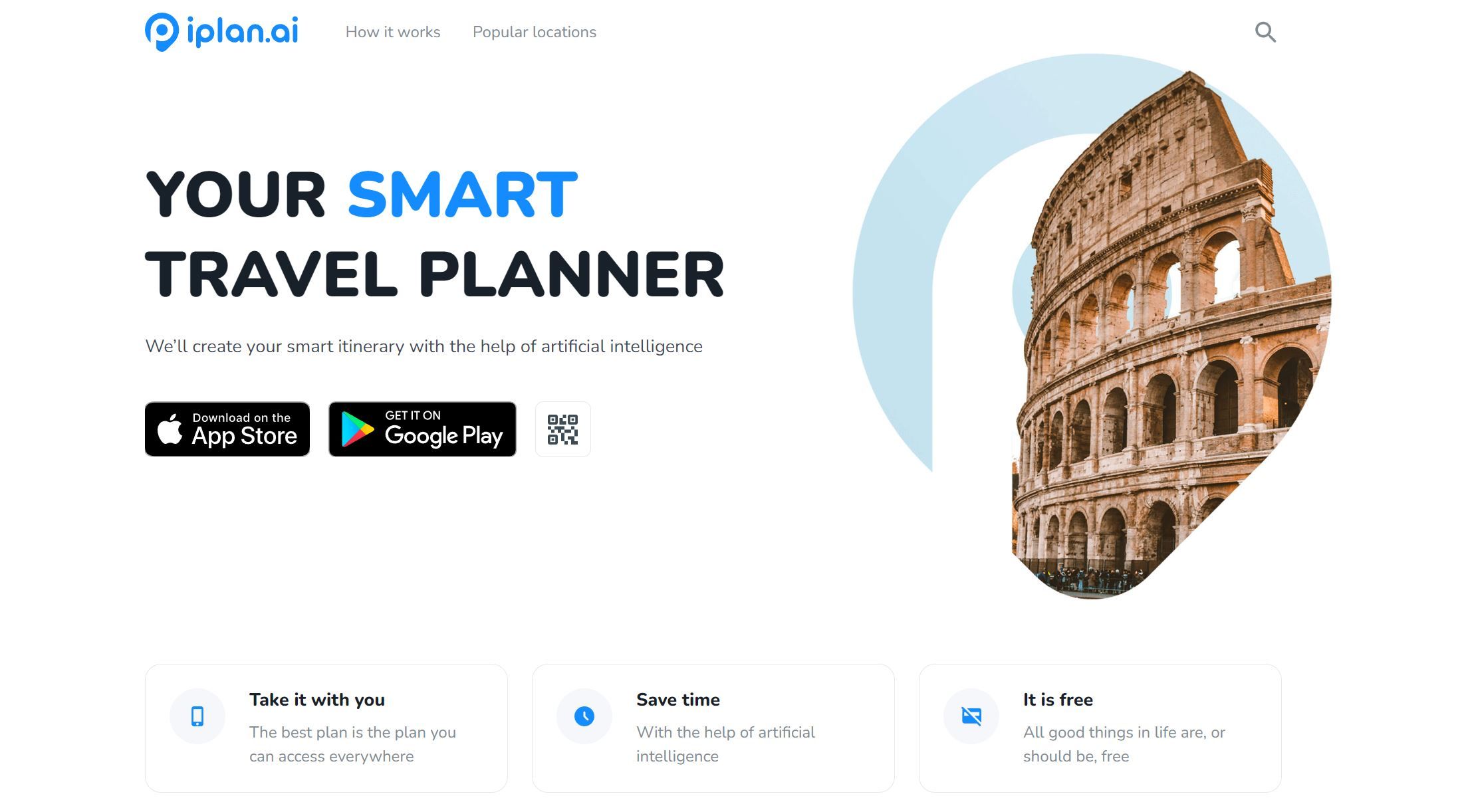
Pricing:
Not specified
Features:
Personalized itinerary creation using AI
Ability to see approximate time needed at each location
Option to share itinerary privately or publicly
User control to modify or remove itinerary items
AI adapts to changes for personal needs and updates the itinerary
Pros:
Quick and efficient itinerary creation
Personalized travel plans based on user input
Flexibility to modify and control the itinerary
Cons:
Pricing and plan details not specified
Dependent on user input for personalization
5. Skyscanner
A generative AI-powered search discovery and inspiration tool developed by Skyscanner. It assists travelers in planning trips by generating travel ideas, recommendations, and destination suggestions with links to flight options. The tool uses OpenAI's Chat GPT technology, allowing travelers to input open-ended statements and questions for travel planning.
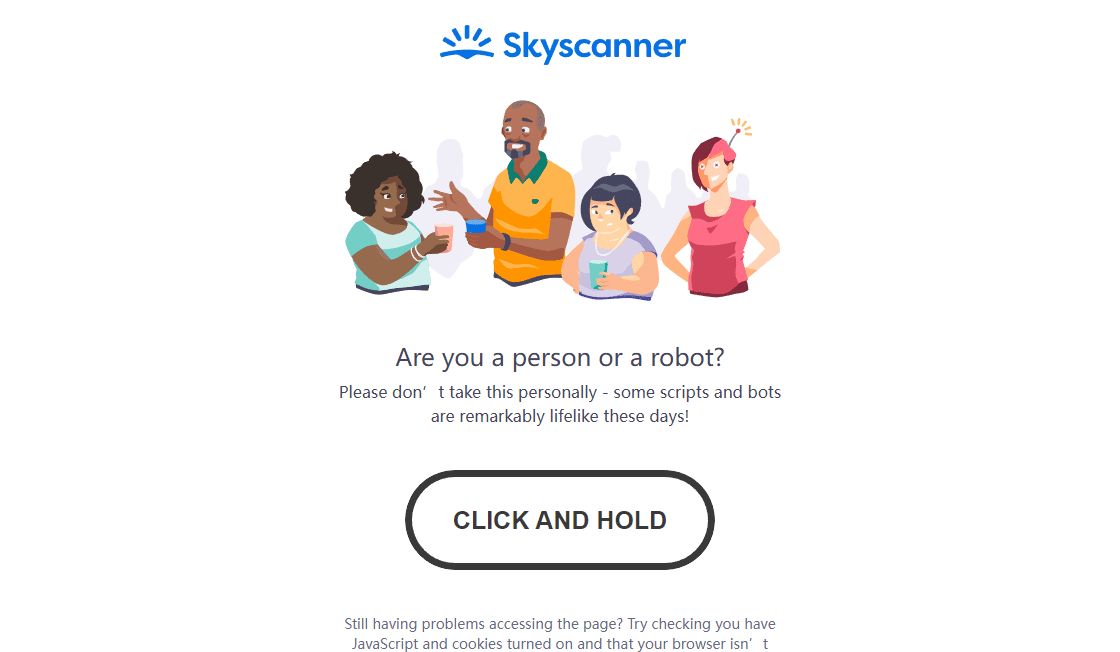
Pricing:
Free
Features:
Generates travel ideas and recommendations
Provides destination suggestions with flight options
Uses OpenAI's Chat GPT technology for interactive planning
Rich destination descriptions and imagery
Integrated with Skyscanner's flight search functionality
Pros:
Innovative use of generative AI for travel planning
Interactive and user-friendly interface
Integration with Skyscanner's flight booking system
Helps users discover new travel destinations and experiences
Cons:
Currently in beta phase
Limited initial launch in Australia, India, and Singapore
Dependence on the accuracy and relevance of AI-generated suggestions
6. PLAN by Ixigo
Ixigo.com provides a comprehensive travel planning tool, leveraging AI-driven functionalities to simplify organizing travels. It assists in choosing destinations, booking flights and hotels, and arranging local transportation.
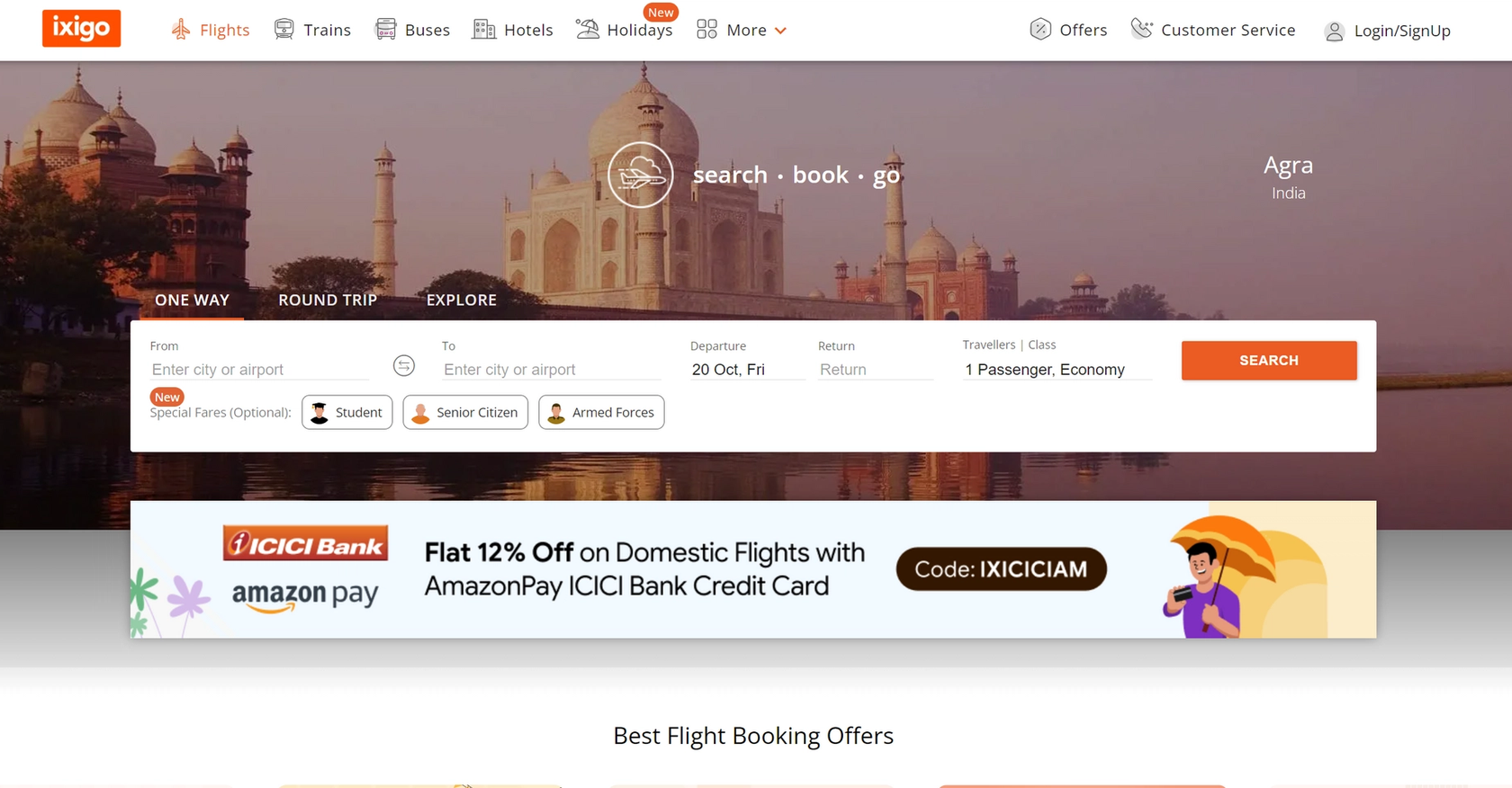
Pricing:
Freemium
Premium
Features:
Real-time alerts for flight status and fare drops
Comprehensive hotel booking system
Vast repository of travel-related content
Taxi booking feature
Interactive 'Travel Planner' for detailed destination information
Pros:
Simplifies travel planning with AI functionalities
Offers a range of booking options for various budgets
Provides detailed travel information and planning assistance
Cons:
Advanced features require premium subscription
Additional costs like transaction fees may apply
7. TripPlanner.ai
TripPlanner.ai is an AI-powered itinerary planning service offering custom travel plans using artificial intelligence, machine learning algorithms for personalized activity and destination suggestions, real-time information about weather and transportation, and a user-friendly interface for easier and faster travel planning.
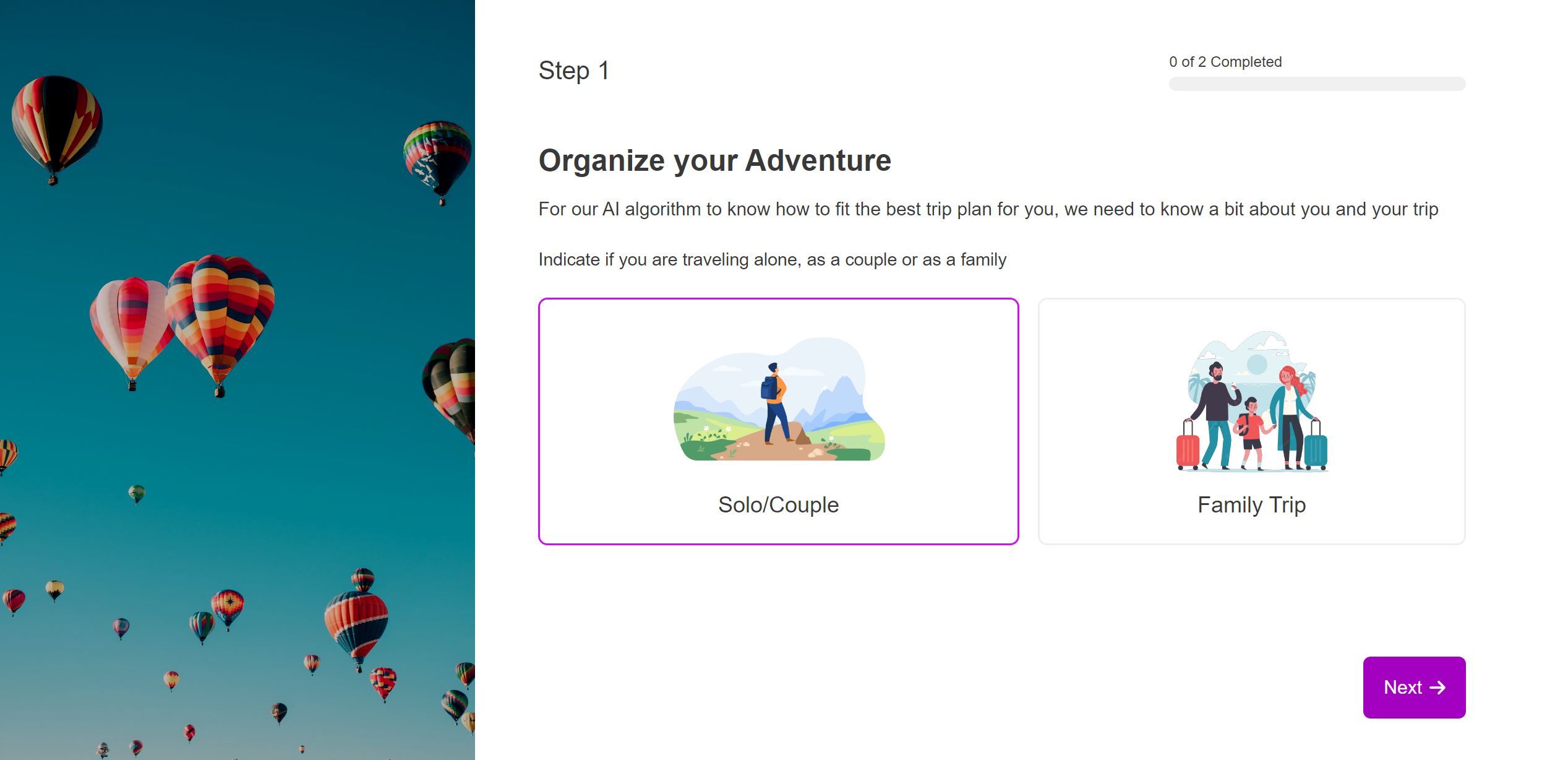
Pricing:
Free
Features:
Custom travel plans using AI
Machine learning algorithms for personalized suggestions
Real-time information on weather and transportation
User-friendly interface
Pros:
User-friendly interface
Customized travel plans based on user preferences
Incorporates real-time information for planning
Cons:
Limited information available on limitations or drawbacks
8. AI Supported Travel Blog Platform
AI Blogger is a powerful travel blog writing tool that uses artificial intelligence to help create high-quality content in minutes, overcoming writer's block and enhancing writing skills.
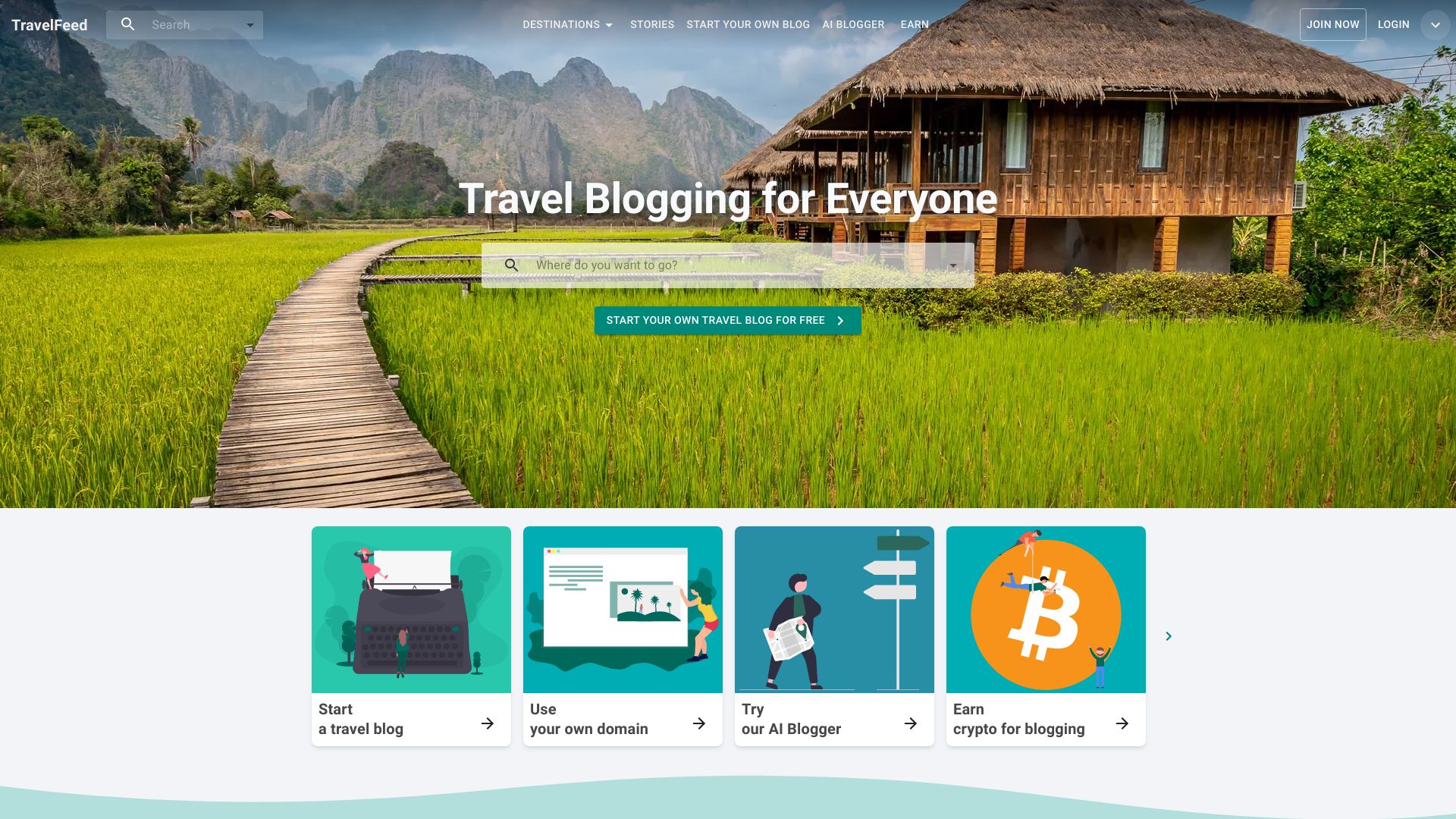
Pricing:
Free
Features:
Input travel notes, destination, and audience to generate posts
Revise generated outline to capture travel experience
Review and edit generated blog posts for personal voice and style
AI-generated smart blog titles to attract readers
Instant map creation for blog embedding
SEO and engagement optimization for travel blog content
Time-efficient creation of high-quality travel blog posts
Pros:
Saves time in content creation
Helps overcome writer's block
Optimizes content for SEO and engagement
Generates unique and engaging titles
Creates maps for blog posts instantly
Cons:
May require manual editing for personal voice and style
Dependent on user input for content generation
Summary:
In conclusion, the emergence of AI in the travel sector marks a significant leap forward in how we plan and experience our journeys. The platforms discussed - Booking.com, TripAdvisor, KAYAK, iplan.ai, Skyscanner, ixigo.com, TripPlanner.ai, and travelfeed.io - showcase the diverse applications of AI, from improving search capabilities to creating personalized travel experiences. As these technologies continue to evolve, they promise to make travel planning more intuitive, efficient, and tailored to individual preferences, paving the way for a more interconnected and accessible world.